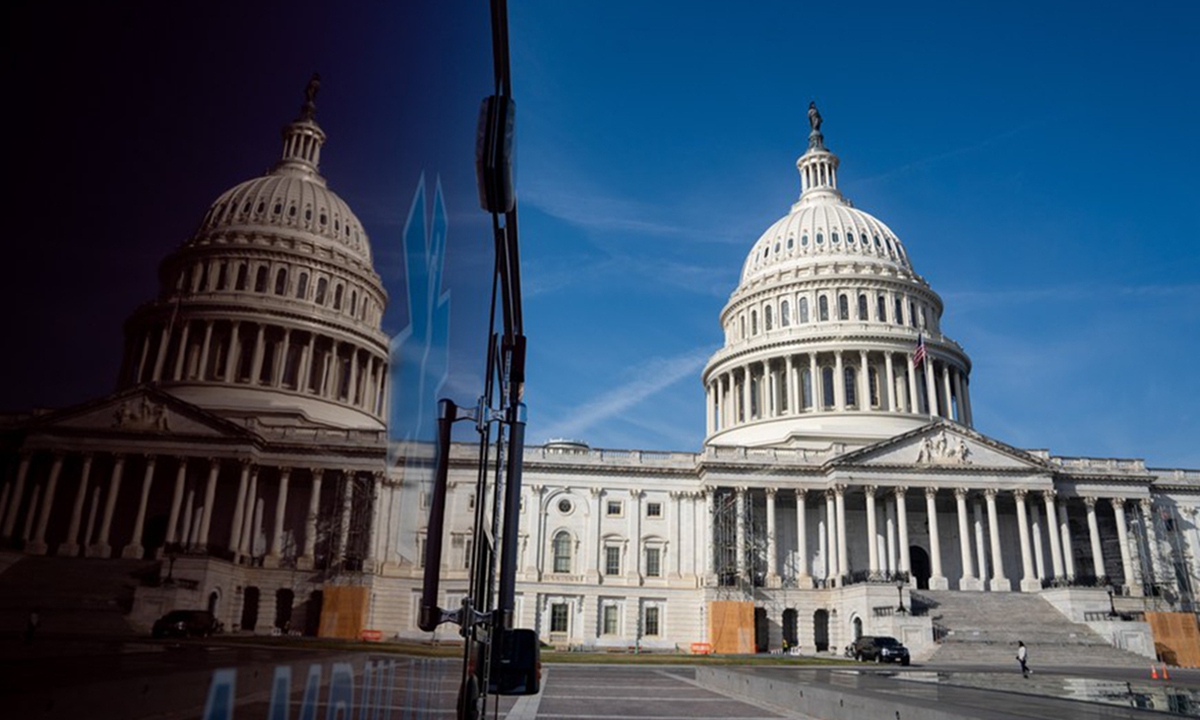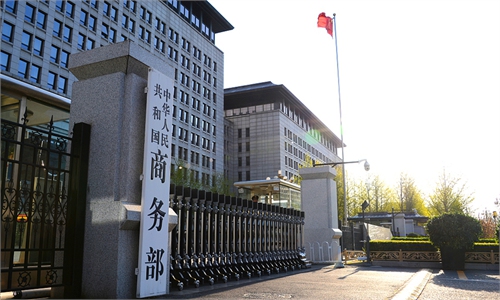US House report hampers China-US academic exchanges, an 'old cliché' used to fuel 'China threat' rhetoric: observers

The US Capitol building is seen in Washington, DC., on November 4, 2022. Photo: Xinhua
Chinese observers on Tuesday slammed smears presented in a US House committee report as a cliché that was aiming at stifling China's technological advancement and hyping up the "China threat" narrative.The report, released on Monday by the Republican members of the House Select Committee on the Chinese Communist Party and the House Committee on Education and the Workforce, claimed that hundreds of millions of dollars in US federal research funding over the last decade has contributed to China's technological advancements and military modernization and that collaborations between Chinese entities and US-funded researchers and universities have significantly contributed to China's progress in critical areas such as hypersonic and nuclear weapons, artificial intelligence, and semiconductors, according to the New York Times.
This is just part of the US anti-China rhetoric, repeating the same cliché of smearing China, Lü Xiang, an expert on US studies at the Chinese Academy of Social Sciences, told the Global Times on Tuesday.
The US has been hyping up the normal exchanges between China and the US, particularly since 2018, Lü noted.
House Republicans argued that these research publications could potentially be weaponized against the US in the event of a conflict with China, according to Fox News.
The report calls for stricter regulations on federally funded research and limiting the opportunities for researchers receiving US grants to collaborate with Chinese universities and companies that have military connections.
However, the Democrats on the China committee chose not to sign on to the report, saying that it was a conversation that required more nuance. "Cutting off all collaboration would not serve US interests either," reported New York Times, citing a representative for the committee's Democratic staff.
The GOP report clearly said it was the US Department of Defense and US intelligence agencies that are funding relevant schools and research institutes. Such claim is similar to accusing them of potential treason. Such accusation reflects the increasing intensity of political struggles within the US, Li Haidong, a professor from the China Foreign Affairs University, told the Global Times on Tuesday.
A Chinese military expert who requested anonymity told the Global Times on Tuesday that the US is once again overstretching the concept of "national security" and hyping the "China threat" rhetoric.
Scientific and technological researches themselves are neutral, and many of the projects are not military-backed, the above-quoted expert said. It is the US that unilaterally labeled them with the so-called military applications.
It is worth noting that the US report significantly exaggerates its own scientific research capabilities while downplaying China's research and development achievements, Lü said. He noted that China is in a leading position in many areas of the scientific research, especially in large-scale applications and integrated applications.
The House report examined several China-based joint institutes between Chinese and American universities, including the University of California, Berkeley and Georgia Institute of Technology. Both Berkeley and Georgia Tech disputed many of the report's findings, according to the New York times.
'Risk of long-term damage to bilateral ties'
Following the San Francisco summit between the two heads of state in November 2023, China has been facilitating deeper communication, whereas the US has imposed numerous obstacles that impede the enhancement of normal interactions between the two sides.
Mao Ning, a spokesperson of the Chinese Foreign Ministry, told a press briefing in June that such US moves "have created a chilling effect" for cultural and people-to-people exchanges between the two countries.
The smear campaign launched by the US against China's independent, innovative technology developments serves to further obstruct normal academic exchanges between the two countries, the above-quoted military expert who requested anonymity told the Global Times.
The educational cooperation between China and the US offers significant benefits, particularly in the foundational training of students from both countries. Impeding the normal exchanges in science and technology between the two countries results in significant losses for all parties involved, Lü noted.
Cutting off scientific exchanges between China and the US will result in long-term damage to the relationship between the two countries, Lü warned.




